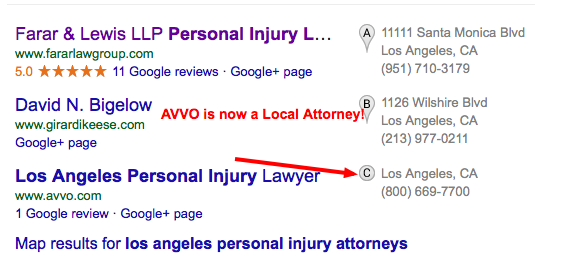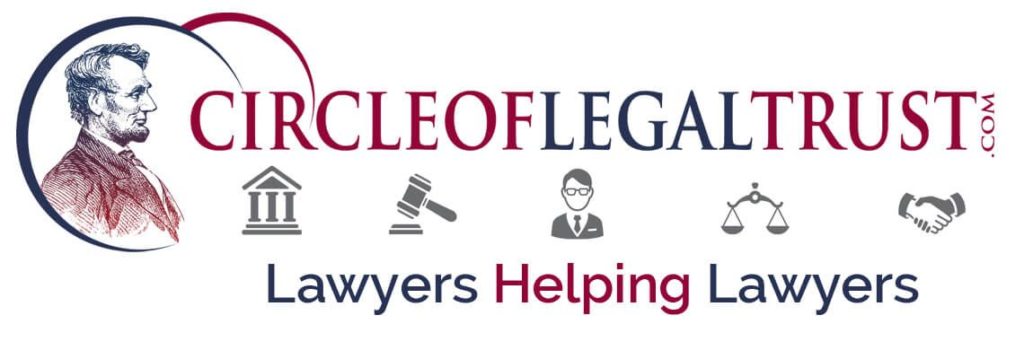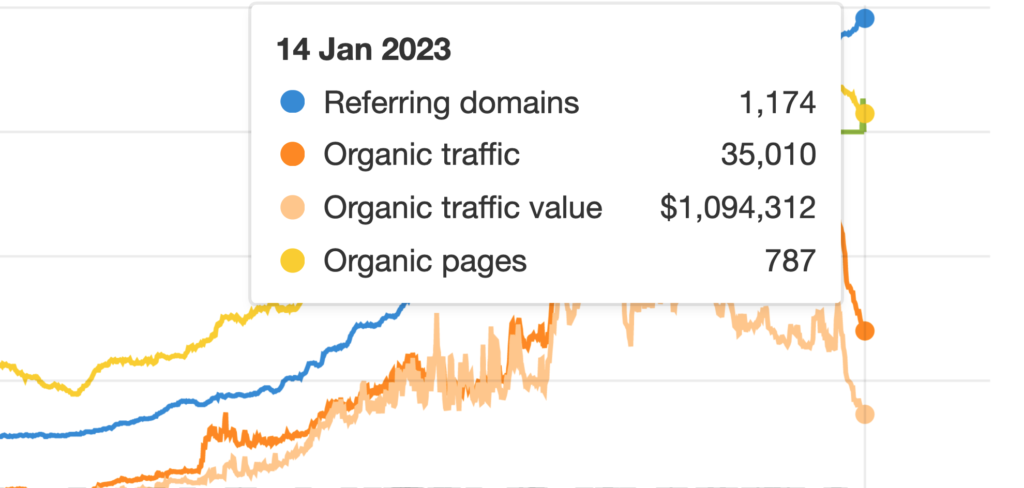How Will Page Experience Update Tank Your Law Website? | A Complete Guide for Law Firms

When it comes to improving the visibility of your law firm’s website on search engines such as Google, there is nothing more important than proper law firm search engine optimization efforts.
When done correctly, your web page will easily rank higher on search engine results pages, alongside other important pages covering the same topic.
This is the key for website owners to achieve better numbers of site visitors, which is the ultimate goal of digital marketing.
Being part of the highest-ranking organic search results has always been difficult thanks to the strict guidelines imposed by SEO for search engines.
However, things may have become a lot more complicated now with the introduction of the new Google page experience update.
Site owners trying to get their law firm website URL to achieve optimum ranking factors have their work cut out for them.
If like most law firms, you are concerned that your content marketing strategy has suddenly become ineffective, then it is time to approach Circle of Legal Trust for some advice.
Give us a call at (888) 494-5015 and schedule a free consultation today for your law firm.
What Is the Google Page Experience Update?
If you have been following Google’s announcements recently, you will know that for quite some time now it has been focused on improving every website’s user experience, which will have a big impact on its search engine results pages.
Before the implementation of Google’s page experience update, the important signals were as follows:
- No intrusive interstitials (intrusive ads)
- Safe browser experience
- HTTPS
- Mobile friendly websites
These signals will remain in place, with the addition of three factors, known as core web vitals.
How Will This Affect Search Engine Optimization?
If your law firm’s website was already optimized with quality content that is relevant to search intent, then thankfully the impact of these new updates will not be as severe as for those with poorly optimized website URLs.
However, improvements will still be needed in key areas, such as visual stability, fast load speed, and better mobile usability. It is in these areas that experienced SEO technicians can help their prospective clients.
How Have Past Updates Affected the Google Search Experience?
This is not the first time that the search engine giant has tweaked its SEO algorithms to try to achieve an improved page experience on its web pages.
Updates, such as Panda, Penguin, and Medic have all been dropped with very little warning in the past.
They each have varying degrees of impact on how Google measures ranking factors and search engines understand search queries.
This new update is taking a slightly different approach in its introduction of the latest core web vitals by focusing on the following page experience signals:
- New Tools
The search console for Google has been equipped with new tools that can be very helpful to an SEO technician and digital marketing team trying to keep track of core web vital metrics.
- Focus on Mobile Users
Mobile devices have continued to bridge the gap between desktop users’ page experience and those that rely on mobile search results. In response, Google has made creating content that is mobile-friendly a priority.
Page elements with a slow mobile load speed will suffer a lot more under the new page experience signal being implemented.
- Safe Browsing
The new core web vitals have zero tolerance for poor web page security. This means site developers need to pay extra attention to eliminating negative issues, such as hacked content, malware, and unwanted software downloads.
Any downloads you offer to legal clients and other website visitors should be safe to maintain a good user experience status.
- Better Coding and Web Practices
Using good coding is now a significant component in making the web page of your law firm ready to reap the maximum benefits of Google’s page experience update.
This means paying attention to link building for internal links, removing broken links, and targeting a more responsive design for your websites.
Such improved web practices will help owners improve loading speed, create content with a high-ranking signal, generate positive reviews, eliminate duplicate content, reduce the saturation of paid ads, and provide a more user-friendly experience for clients.
- Gradual Launch
At the time of writing, the updates are already live on Google but the launch was a lot more gradual than previous updates.
Google announced its intentions to make changes that would affect rankings a long time ago, giving law firms and other businesses enough time to take steps to improve user experience.
A Look at Google Core Web Vitals
To simply say that the focus is on the improvement of user experience is rather vague, especially if your law firm’s site has never been properly optimized before.
Furthermore, to make it easier to understand for site developers, Google broke it down into the three most important page experience signals that your law firm website needs to focus on, which are interactivity, loading speed, and visual stability.
To keep track of these signals, you will need the following metric measures:
- First Input Delay
- Cumulative Layout Shift
- Largest Contentful Paint
These metrics measure page speed, ease of access by potential clients, and inconsistencies in the page content. The core web vitals report will replace the old speed report that was used by previous versions of the Google search console.
Preparing Your Law Firm Website for the Core Web Vitals Update
First, before you implement the new Google page experience update you have to check the state of your website by running the core web vitals report.
You can do this using the Google search console to select core web vitals and click on “enhancements.”
From here, you can easily identify the URLs that need to be worked on based on whether they show up as “needs improvement” or “poor.”
The core web vitals metrics will be your key to figuring out how best to improve the URLs.
Google will tell you the specific issues with your URL and you will be able to categorize each problem as either:
- Not started
- Started
- Looking good
- Passed
- Not available
- Failed
Try the following tips to prepare your websites for core web vitals:
Largest Contentful Paint (LCP)
Load time is the most critical issue here. You need to dive deeper into the specific core factors that have the biggest impact on your loading time and try to fix those.
Focus on the largest content elements, such as videos, large images, and any text or content in the visible areas.
Pay attention to your web servers, CSS, and JavaScript as well because they all have a huge impact on your load speed.
Cumulative Layout Shift (CLS)
Your webpage stability is the most important factor here because it can make even pages with high-quality content have a poor user experience.
If the page is not stable, Google will lower its ranking factor despite having relevant content or attracting more clients than other pages.
First Input Delay (FID)
Visitors to your websites, especially new clients, are usually not patient enough to wait for an unresponsive website.
Such a page will likely have a very high bounce rate, especially from those using a mobile device to access the site.
Look at JavaScript, your code, and third-party servers when trying to improve how interactive your website is.
Is the Web Page Experience Update Important for Law Firms?
The importance of ranking high on local search results has long since been established, which is why companies invest so much money, time, and energy in formulating an effective technical SEO strategy.
Your site’s SEO manager already works on the basic fundamentals of improving webpage experience based on SEO strategies that focus on:
- Keyword research
- Visibility on Google maps
- Local SEO strategy
- Use of local keywords
- Visibility in legal directories
- Improved online advertising
- Engaging content creation
- Using strong meta descriptions
The web page experience update is just the next step needed to direct traffic to your website.
It will have an impact on how users perceive your home page when they first visit your site, especially when compared with other sites already implementing the new updates.
If you are not among the most visible pages that rank high on Google results pages, then you are losing a lot of business.
Vital Steps To Optimize Your Website for the New Update
Getting ready for the new update may seem very stressful at first, but with the right strategy, you too can soon be enjoying more traffic and a visitor clicks simply because your page now loads quickly.
You can significantly reduce bounce rates by focusing on the following issues:
- Improve Mobile-Friendliness
This is Google’s top priority with this new update. Many firms are already making efforts to make sure their first page and important pop-ups load quickly on any mobile device.
- Boost Site Speed
Your overall site speed needs to be as quick as possible to avoid being brutally punished by Google’s page experience update and losing potential clients.
The best way to do this is by focusing on the largest content element on your webpage and making it load faster.
- Reduce Site Security Issues
We have a lot of research tools that we can use to improve the security of your website so that when people visit, they are not at risk from cyber criminals and malware.
- Remove Intrusive Interstitials
There are other ways to improve digital marketing without resorting to intrusive interstitials.
Your SEO results can be improved with the use of social media access, bulleted lists of well-written content, keywords that target a specific search term include, and other similar SEO strategies.
Time to Focus on Those Core Web Vitals!
The key to better digital marketing is right there at your fingertips thanks to Google’s introduction of a new set of core web vitals. If you want to improve the page experience on your law firm’s website take a look at the tips and advice in this article.


